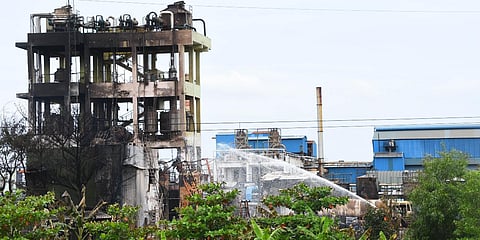Giving top priority to industrial safety
It is an utter mess—this was the broad conclusion of the high-power committee that probed the Visakhapatnam gas leak on the existing industrial safety and environment regulatory systems in the country. In its voluminous report, the panel dealt not only with lapses at LG Polymers but also the ecosystem that has been allowing accidents in factories to happen at regular intervals.
For instance, as per a recent report of the factories department, a staggering 138 fatal accidents occurred in various industrial units between 2012 and 2020 in Visakhapatnam district alone. A little over a month after the gas leak, a blast at Sainor Life Sciences Pvt Ltd at the Pharma City in Parawada claimed a life. Across the country, almost 30 such incidents have occurred since the lockdown was withdrawn.
If safety isn’t taken seriously at least now, there is no stopping these tragedies. A piecemeal approach will not do. There are many aspects to the safety issue but the glaring problem is the existence of too many Acts and parallel bodies responsible for enforcing the same, creating confusion. We have the Factories Act, Explosives Act, Fire Services, etc., which deal with different types of rules in petro and chemical factories. For environmental clearance, we have the State Pollution Control Boards and the Central bodies, which often appear to be working at cross purposes.
The recommendation of the panel to have a single nodal agency, the Factories Safety Board, makes eminent sense. Similarly, its call for ensuring a single line of monitoring in case of environment-related issues too is sensible. Inadequate training for contract workers, failure in following emergency protocols and overall, the absence of a culture where safety is given top priority are among the other issues plaguing our industrial units. The onus is not just on the governments but also the companies. The task is cut out and remedial action should start from the top, which is the Central government. As we pointed out earlier in these columns, it must operationalise the National Plan on Chemical Safety without delay. It may take a leaf out of the European Union’s book.

